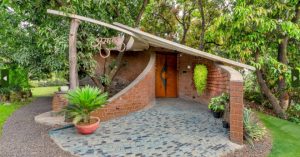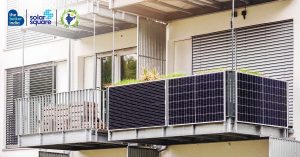65-YO’s Eco-Village in Goa’s Jungles Has Hand-Crafted Tree Houses & Organic Food
Panta Ferrao discovered the downsides of development projects as a lawyer. He left his job and created ‘Khaama Kethna’, an eco-village in Goa’s jungles, turning a damaged land into a beautiful organic retreat.
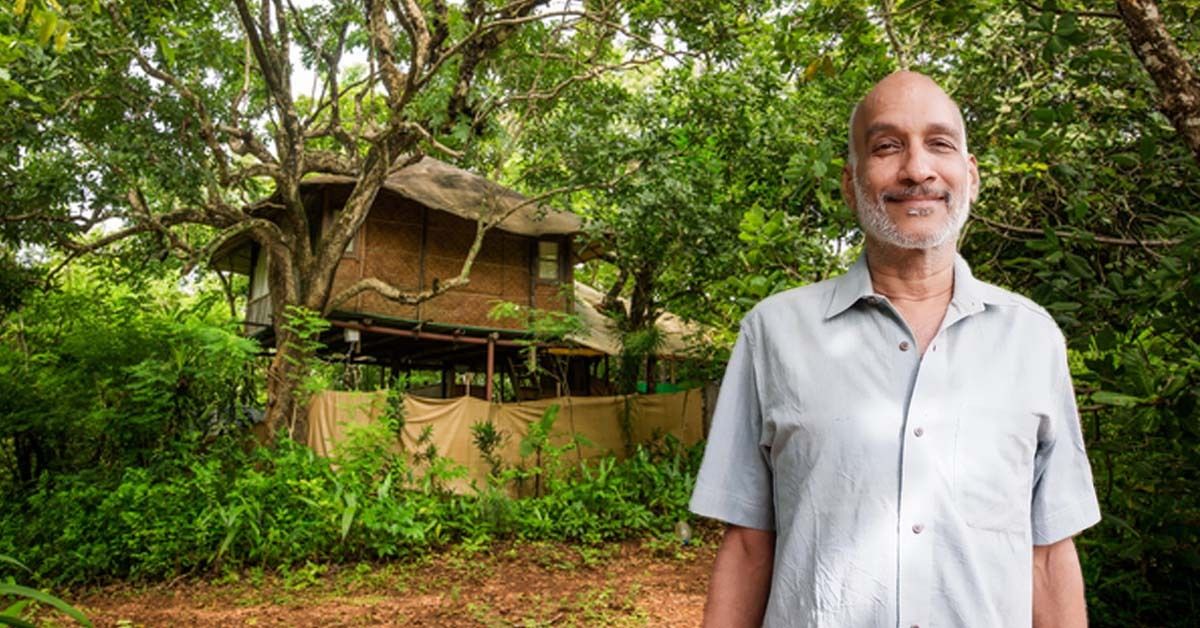
A whiff of sustainability is the first marker of what lies ahead as one sets foot on the ‘Khaama Kethna’ property — an eco-village in South Goa. Translating to ‘a work of love on the land’, the name and the idea were the brainchild of a 65-year-old lawyer, Panta Ferrao.
The Goan native is rarely without an audience as he speaks of the journey that got him here. A stint of five years as a practising lawyer introduced Ferrao to the ugly side of developmental projects.
“The Earth’s resources are being exploited. I became deeply aware of how grave pollution was.” For someone who had spent the major portion of his childhood in the lap of nature, with the trees and insects for company, these environmental jeopardies were of great personal concern.
In 1996, Ferrao had had enough. He decided to quit the corporate world and pursue more creative motivations. And just like that, ‘Khaama Kethna’ is an attempt to bring back the lost magic of nature into urban settings.
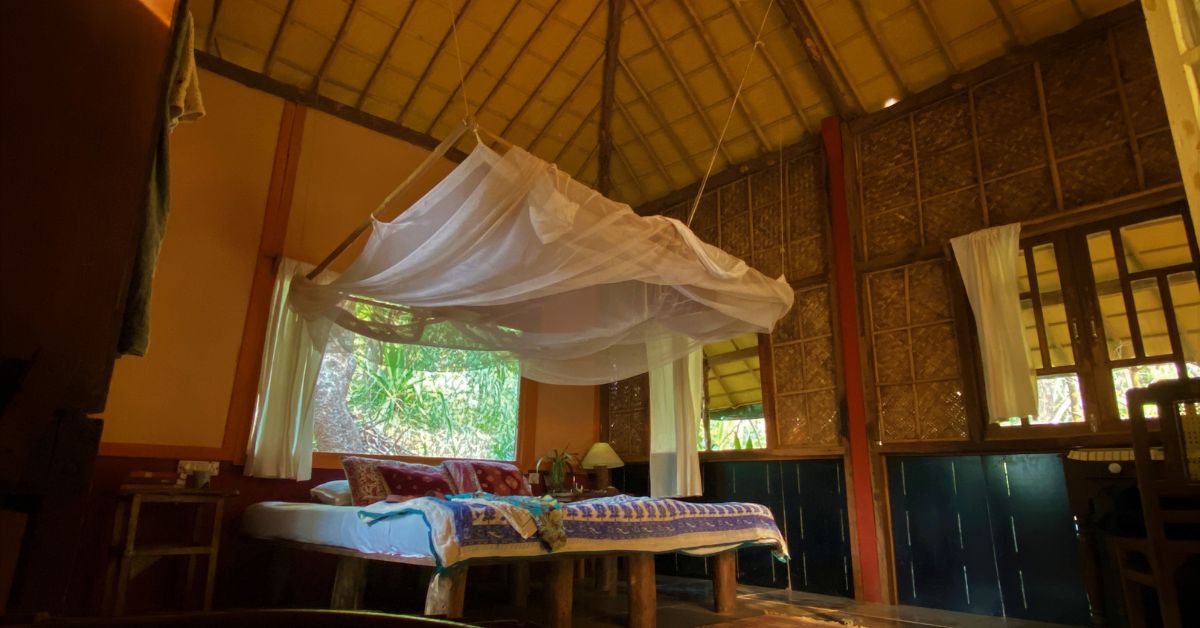
But, it isn’t Ferrao’s first tryst with creating an eco-friendly property from the ground up. His first venture into this realm was a nature resort ‘Bhakti Kutir’ in Palolem, Goa. The 700 sq m property was once an abounding coconut grove. But time had taken its toll on the area.
“The traditional way of cultivation meant that all the trees had been cut down in undergrowth. As a result, the land had degraded. When we (my ex-wife and I) purchased the land, we focused on regenerating it by planting more native and indigenous trees. We then started an ecological, health and nature resort with eco-friendly structures built using bamboo, rice husk, and straw.”
To this day, Bhakti Kutir draws travellers to it with its eco-friendly facades. The main allure continues to be the cabanas and the star-studded skies at night.
In 2012 Ferrao withdrew from operations to channel his energies into another project that was later christened as ‘Khaama Kethna’.
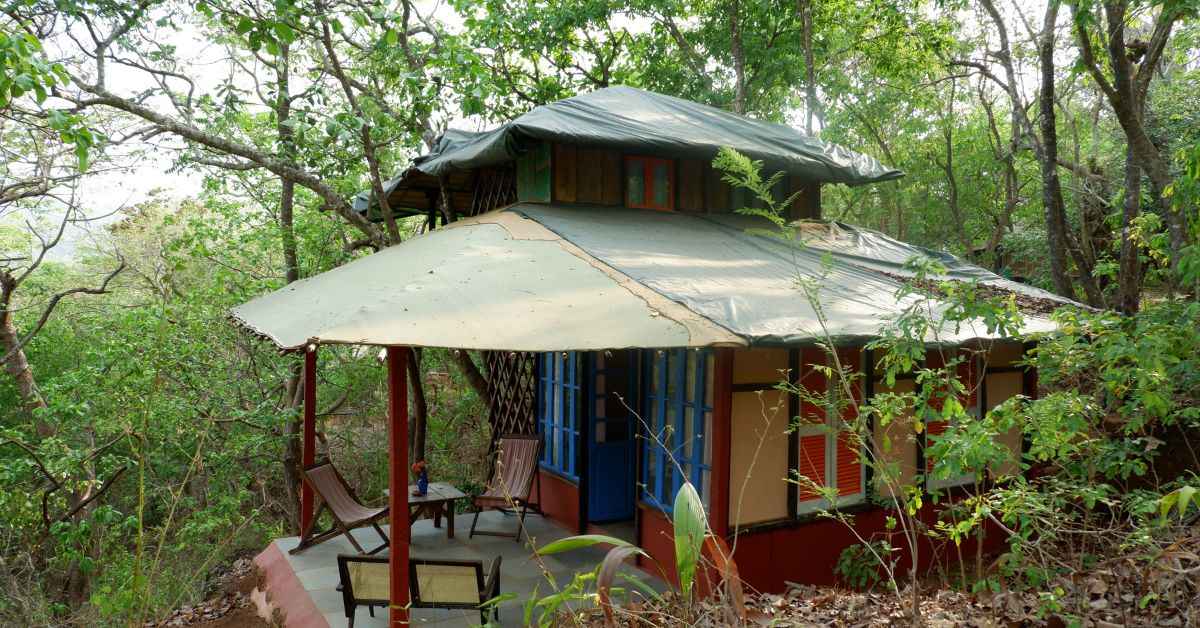
Moving from the coast to inland
Tranquillity seems to be the theme of the day at this eco-village.
Something that Ferrao learned following his transition from a bustling corporate hustle to this slow-paced lifestyle was how living with less allowed humans to experience more. And every activity at the resort upholds this philosophy.
Nature lovers and trekkers are bound to have the time of their lives here. Being wrapped in the forested Agonda hills evokes the feeling of a jungle trip.
In fact, as Ferrao cautions, everyone at Khaama Kethna is reminded that they are guests in the wilderness, and not the other way round. “Therefore we must respect its serenity and natural rhythm,” he smiles.
Frogs in the bathrooms and foliage in the bedrooms are but natural, he says, going on to explain how the site was once a degraded hillside. Despite this infamous popularity, Ferrao knew its potential for once being an area teeming with cashew plantations.
So, In 2005, after deciding to further his dreams of a sustainable life and buying the land on which Khaama Kethna now stands, he made it his mission to restore the land’s fertility.
How did he achieve this?
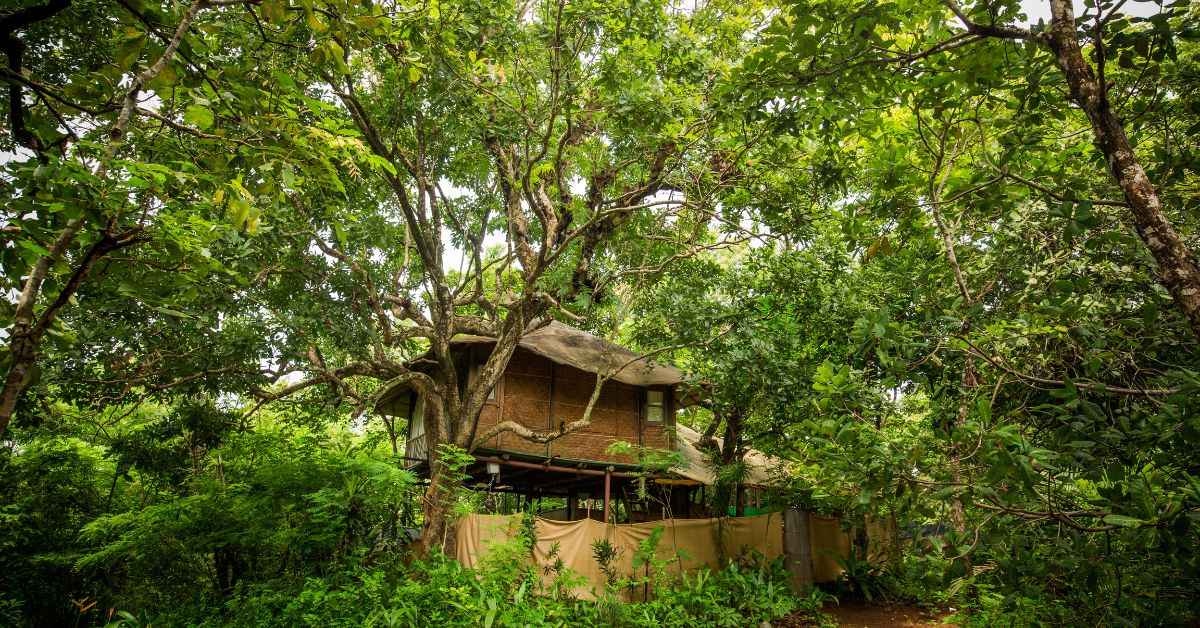
“I started by making biologically balanced organic living compost,” Ferrao shares, explaining that his primary focus was to revive the natural setting. Nourished by this compost, indigenous, native, medicinal and fruit trees were soon in bloom. “In addition to the trees, I began planting bushes, shrubs, grasses, vegetable plants and herbs.”
Today, handcrafted cottages, carpentry workshops, crafts centres, animal farms, wellness retreats and forested areas that dot the landscape of the ecovillage are a testament to his unwavering belief in the land.
A slice of paradise with your tea
When it came to housing, Ferrao was intent on replicating a jungle stay experience. Through a meticulous ideation process, he has ensured that every tree house and cottage is unique in design and handcrafted using natural materials.
A private garden terrace accompanies each tree house and the multi-bedroom eco treehouses sleep six people comfortably.
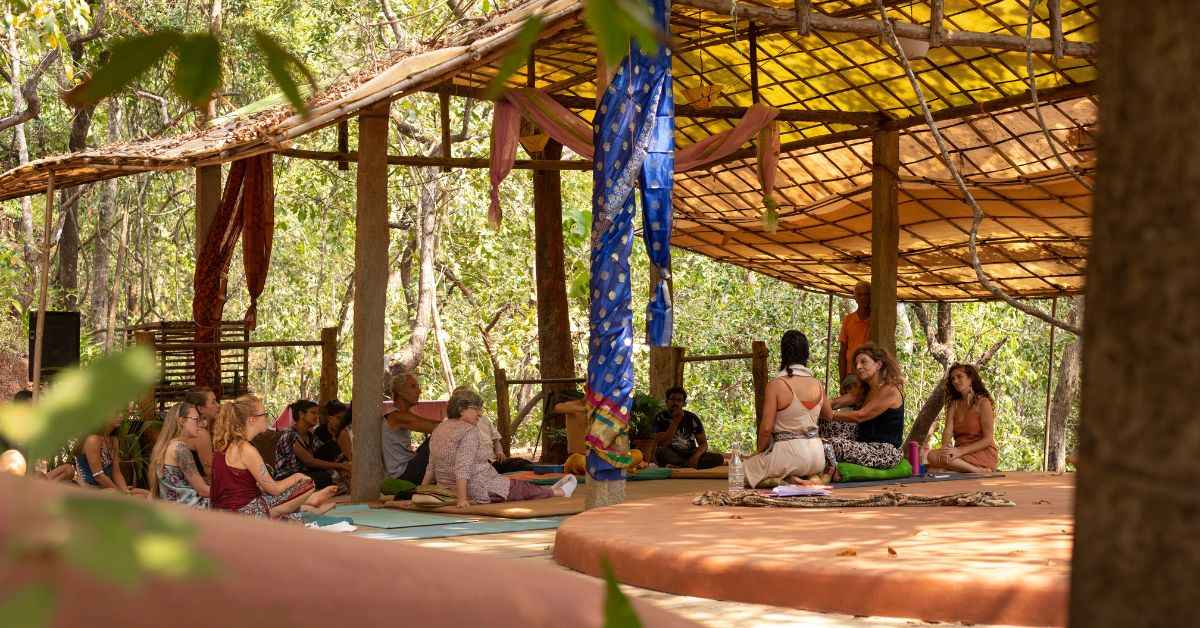
“Bamboo mats were the hero material during building,” he notes adding that the rest of the material used was recycled scrap — pillars, beams, rafters, window frames — that he sourced from the area.
He goes on to narrate these stories. “Over the years I have seen several old houses being demolished. I would collect and refurbish these building materials and furniture which were being discarded at the time and store them. When building Khaama Kethna, I utilised them.”
That being said, owing to how adaptive the structures are, they need continual care, maintenance and renewal.
“The process of construction has always been guided by organic growth,” Ferrao shares. “It is a self-sustaining project meaning each year more is completed or changed as more financial input becomes available. So in a way, it is still and always will be evolving.”
Through every undertaking at Khaama Kethna, Ferrao’s overarching aim has been to demonstrate that it is possible to live a simple and minimalistic life.
With the idea of causing as little damage to the land as possible, Ferrao says, “Every cottage is designed to incorporate the trees and surrounding life forms of the jungle. Every space always allows nature to pass through and flow into it. This sends the message that we are not separate from nature but rather an integral part of it.”
And guests love this theory, calling the place “healing”, “one that stills the mind”, and “lives up to its promises”.
A particular favourite is the bathrooms that open to the heavens. But, look closely, and you will see that a perfectly thought-out system accompanies the design. The shower water drains into the garden where it recharges the water table and is used for the plants. The toilets, meanwhile, are earth closet style compost toilets, the product of which is then used to nourish the trees.
As you enter the bedrooms and admire the furniture, you’ll be fascinated to know that all of it has been made on-site and of upcycled material.
Evenings at Khaama Kethna have an adventurous laziness about them. There is so much to do, but sitting in silence is probably the most cherished activity here.
You can choose to relax indoors or venture outdoors for a nice breezy evening walk around the property. As evening sets in and dinner is being prepared, it is fascinating to watch the organic produce going into the wood fire stove where local delicacies are cooked by the women of the area. And as you gorge on these, Ferrao will treat you to the lores of Goa and his escapades.
The ecovillage is after all his dream come true. But while the entire land is his pride, there is one spot that has his heart.
At the northern tip of the village, as the sun sets over Khaama Kethna, Ferrao can often be found relishing his solitude. And as he tells us, no amount of city luxuries could beat the view.
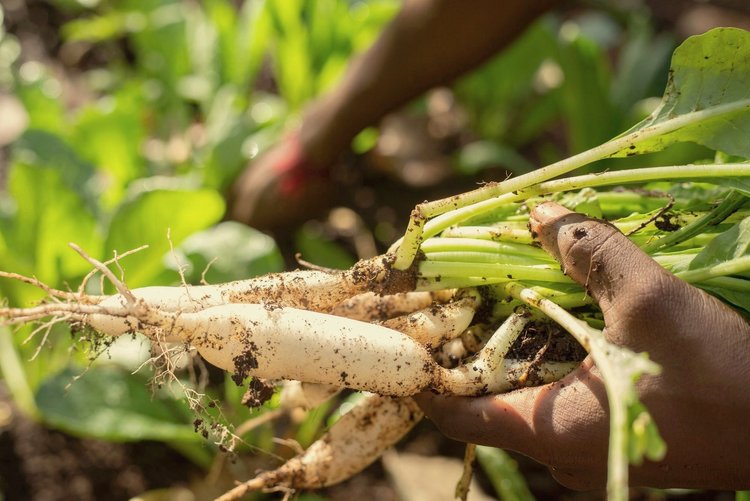
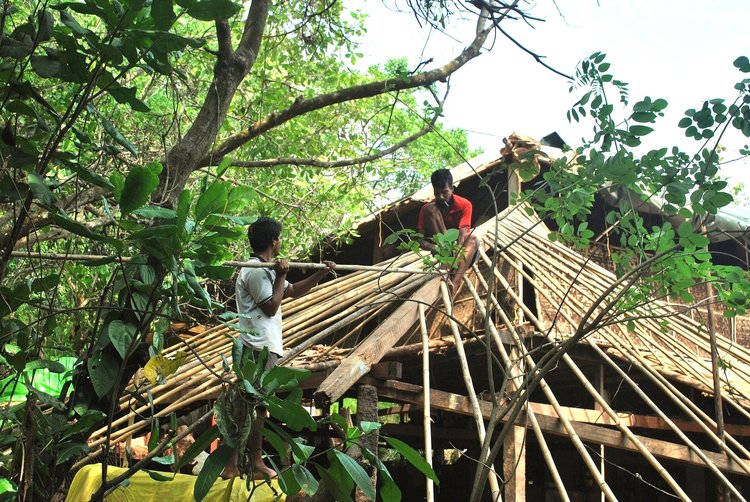
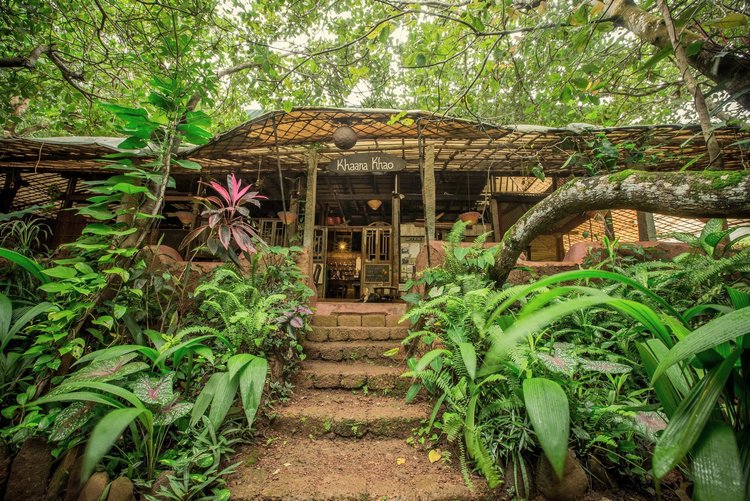
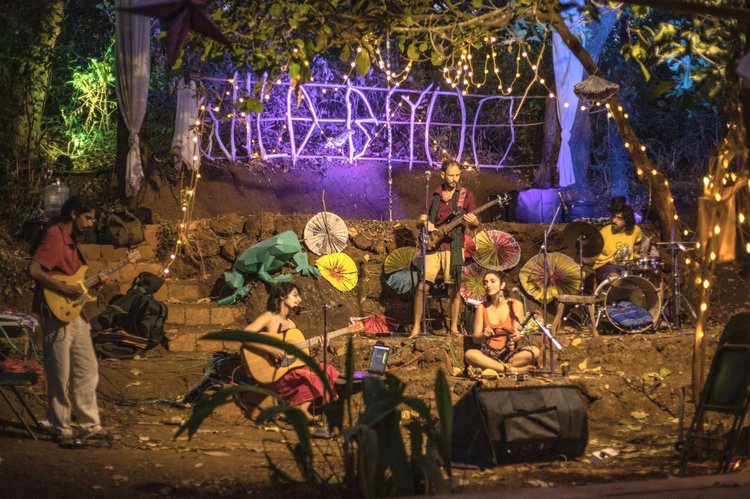
Edited by Pranita Bhat
If you found our stories insightful, informative, or even just enjoyable, we invite you to consider making a voluntary payment to support the work we do at The Better India. Your contribution helps us continue producing quality content that educates, inspires, and drives positive change.
Choose one of the payment options below for your contribution-
By paying for the stories you value, you directly contribute to sustaining our efforts focused on making a difference in the world. Together, let's ensure that impactful stories continue to be told and shared, enriching lives and communities alike.
Thank you for your support. Here are some frequently asked questions you might find helpful to know why you are contributing?






